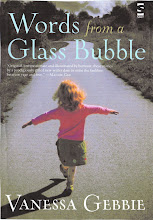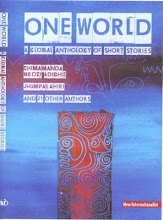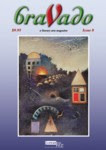I had an interesting discussion this morning with a writing colleague whose opinion I value greatly. And in the discussion it was suggested that I patronise my characters, and by extension, my reader. That has never been said before, and of course, I’ve spent most of the day worriting at it like a terrier, and looking up exactly what ‘patronising your characters’ might mean.
What follows is thoughts and discoveries made today, and posted with thanks to said colleague for making me think.
I’ll start with a fascinating post and subsequent discussion on Susan Hill’s blog HERE, in which she is taken to task for liking Alexander McCall Smith’s lady detective stories set in Botswana, as they are, (some say) patronising.
Also, I work in a face to face group with a few playwrights, one of whom has a wonderful play set partially in Cameroon, in which all the characters are Cameroonian.
The play was sent to a theatre company for a rehearsed reading, the job given to black actors, who liked the play…. until they saw the writer, who is white. It then became ‘patronising’, and they refused to read.
So why is it patronising for a white writer to write black characters? Because that seems to be the issue with both the above.
I write Irish characters, Welsh characters, Cornish, Alaskan, Jewish, Londoners, Japanese, Spanish, male, female, old, young, dropouts, middle class, drug addicts, loners, farmers, postwomen, bank managers, homeless, morticians, single mothers, boys in homes, poets, cleaners, fishermen, hotel workers, bakers, city workers, painters decorators, teachers, carpenters, miners, beggars, social workers, priests, hairdressers, colonic irrigation specialists, soldiers, ex-soldiers, librarians.
I do not write an awful lot of headmistresses, magistrates, queens, kings, prime ministers, lords, ladies… because their lives don’t interest me in the slightest.
Am I patronising because many of my character have issues to overcome? In most of my work, it is the least likely characters who are the catalysts for change, in others. Those who appear to be the 'weakest links'. But I don't think they are, at all, so that's why I write them, I suppose.
But I’m wondering, do I patronise them all, because they are not me, in the same way people are saying white writers can’t write black characters without patronising them? Or conversely,black writers cant write white characters. Or the queen cant write a begger, or a beggar can't write a magistrate?
Are the only characters we do not patronise very very close to our own actual experience? Is that why many writers only ever write ‘what they know’? But I know every emotion that my characters feel. So why does it matter that I am not the embodiment of them in aggregate, externally. Maybe I am, internally.
My colleague also said maybe the comment made had more to do with her/him as a reader, rather than me as a writer. Even more confuddling!!
Thursday, 14 August 2008
Subscribe to:
Post Comments (Atom)




.JPG)























13 comments:
I find your characters honest and true. That's what I look for in writing. Don't sweat it.
You like writing what you like writing; if you stopped to consider what other people think, it might stifle you.
Thanks N.
My colleague had a point though, because there are readers who feel this. My problem is, I don't know who I am, particularly, so it gives me the freedom to be anyone I like.
'Like' being the operative word!
I know that: 'I don't know who I am'... for me it comes with the rootlessness of being an 'army kid', moving every two years and starting over with new people and new places.
I don't see it as a problem any more... just a difference... it's a tool... to use... as a writer... and as you say, it gives you a freedom.
Nothing wrong with being self-analytical, V. But I don't get patronising from your characters; I get identification and sympathy and understanding.
Best
D
I think being rootless is a privilege. Its got its downsides too, but I'm 'with' anyone on the outside, instantly. As you say , it is a tool, to be used, with care.
I'll be honest, I haven't the faintest idea what it means to "patronise" your characters. I don't even see how that is technically possible. Do you mean that this colleague said that it comes across in your stories that you, the writer, looks down upon the characters who people your stories? Well, I have never found that in your stories, nor the slightest feeling of being patronised myself as a reader. I find it a very odd comment to make to a writer. Does this mean it is patronising whenever I, as a woman, write a male main character? Or if I write about someone 20 years older? Or someone, say, French? Anything I am not? Well, if that's what it means, then I must also patronise, as do most of the writers whose writing I love. I'm not surprised you are confused, me too!
I think I understand what's meant. My favourite characters tend to be 'other then' myself. But that's why I made that distinction between other than outwardly and other then inwardly.
When I read at bantry, I read the title story. To an audience made up of people from West Cork, primarily.
I explained, before I read, that this story chose this writer to write it. These characters aren't anyone else's they are mine, and Im not Irish. I tried to do them justice, but was aware that maybe my efforts wold be not as good as an Irish writer's.
After the reading, one woman agreed with me. She'd enjoyed the story but was glad Id said what I had. otherwise she'd have been cross, she said.
You cant work 'to' your reader.
But why is that by its definition patronising? That's what I don't understand. Surely a writer could patronise a character that is similar to the writer, too. And surely the "patronising" is in the eye of the reader. I understand that an obviously English writer reading a story set in Ireland and with an Irish MC to an audience in West Cork would feel a need to explain. But what about a reader reading that on paper, not knowing who you are etc... I think it is up to the reader what to accept and what to reject - this is fiction we are practising, not autobiography.
What's patronising is the "write what you know" cliché - the assumption that a writer of one sex, race, social group, club, gaggle or kink can only write convincingly within their own set.
I suppose it's something to be aware of, but it's absolutely no reason for self-censorship.
I wonder how much of the world's literature would vanish if authors had only ever scribbled within the confines of their own little worlds.
(oops - is "their own little worlds" patronising?)
I'm not sure it is intended to be patronising when teachers suggest writers begin my doing that. It's helping the new drivers to stay wiothin the white lines, really. But later... if we all stuck with it, we wouldnt have Kafka, Tolkein, Peake, Calvino, Marquez... etc.
I may not be right, that this is what is meant,.... but I couldnt find any other ref to this subject!
T, I think maybe it is when the reader knows about the writer. A bit like the actors who were perfectly happy with the play until they saw the writer was not the same as the characters.
Or maybe it is seeing references to drug addicts, when I used to work with the guys, and it seems wrong to write a story from the point of view of a young druggie when I am a comfortable old bat? But I wanted to let people know what they told me it was like.
If you took it to the extreme, every character would have to be you, or possibly your mother. You could never write a man, a granny (unless you are a granny) a nun. But I do read fiction where 'different' characters are cliched. The drunken/abusive priest, the kooky/attractive/ troubled young girl, the acerbic/no nonsense/all knowing shopkeeper, the loyal/promiscuous/camp gay best friend etc and have you ever met a traffic warden who wasn't a meglamaniac?
Doesn't it depend upon HOW we treat the subject? I don't know any Polish people, but from somewhere, I have an instinctive understanding of how things were for them. And no-one has ever accused me of being patronising in my 'treatment' of them in 'Polish Drains'. Also, as Tania says, isn't it down to reader response? Of course there will be writers who will patronise both their characters, and their readership, but really, is that true of you, in your work? This whole thing feels like smoke and mirrors to me, argument for argument's sake.
Who is this 'colleague'? I think we should be told.
You say your characters are 'other than' yourself. Isn't that very often the case? As writers, we often find our own stories dull, not worth the telling, whereas those 'other' fascinate us, speak to us. And yes, you're right, there comes a point when writing to your reader ceases to satify. You have to write to yourself, to the characters who inhabit your head, whether or not they are entirely accurate representations. Also, how many of us are 'pure' in any social or cultural grouping? Very few I'd imagine.
Zoe
Hi EW... yep, you're right... there are loads of cliche'd characters about, and its good to identify and avoid like they are carriers of some nasty disease!
Z... tis explained better and further in the next post on this one.
If said colleague wants to join in, they can... but as the discussion started from emails, its a bit tough to identify. Suffice it to say its someone who knows what they are talking about. And it has started a really good discussion too and all!
Post a Comment